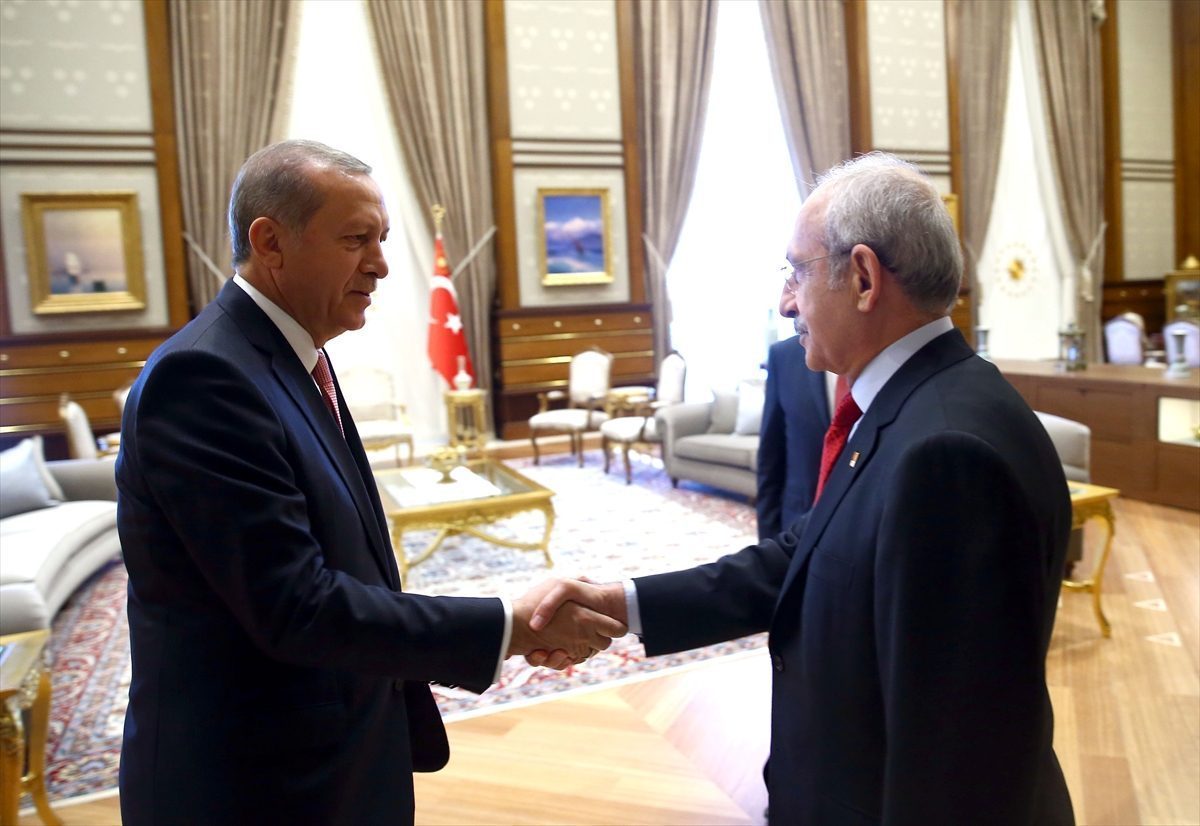
Egypt’s Sisi on Tuesday held a phone call with Turkey’s Erdogan and Syria’s Assad to offer condolences and sympathy to the victims of the destructive earthquake that hit the two countries early Monday.
Egyptian presidential spokesperson Ahmed Fahmy said that during his phone call with his Turkish counterpart, Egypt’s Abdel Fattah Al-Sisi offered condolences and sympathy to the victims of the earthquake in Turkey, and added that Cairo would provide humanitarian assistance and relief.
Also, Sisi offered his “sincere condolences” to Syria’s Bashar al-Assad, according to the Egyptian presidency spokesperson.
“Sisi reiterated Egypt’s solidarity with Syria and its brotherly people in this calamity. He also directed that all possible aid be provided to Syria,” spokesperson Ahmed Fahmy said in a statement.
On his part, Assad thanked Egypt’s position, which he said reflected the “fraternal relations” between the two countries, according to Syrian state news agency SANA.
The US Geological Survey said a 7.8-magnitude quake first struck at 4:17 am (0117 GMT) on Monday at a depth of about 18km near the southeastern Turkish city of Gaziantep.
A second 7.5 magnitude earthquake hit Turkey’s Kahramanmaras province shortly after.
The death toll from the deadly earthquakes in Turkiye surpassed 4,500, Orhan Tatar, head of Directorate of Earthquake and Risk Reduction at the Disaster and Emergency Management Authority (AFAD) said Tuesday.
Meanwhile, the death toll in Syria reached 1,622, with more than 3,600 people injured, according to figures compiled by the Syrian government and civil defense volunteers in opposition-held territory.
In a news conference, AFAD’s Tatar said 26,721 people were injured in 10 provinces across Türkiye. He added that 435 aftershocks happened the two major quakes.
Some 60,217 emergency officials are working in the area, including 3,200 personnel from 65 countries, Tatar said.
Calling on all citizens to refrain from entering damaged buildings, Tatar said aftershocks may completely destroy them. He also called on citizens to not use telephones unless it is an emergency.
Two strong earthquakes on Monday jolted the southeastern part of the country. The earthquakes were also felt in several neighboring countries in the region, including Lebanon and Syria. Türkiye announced the closure of schools until Feb. 13 across the country and declared a week of mourning.
Turkish President Recep Tayyip Erdogan had earlier on Tuesday announced that the death toll had jumped to 3,549 in Turkey, with more than 22,000 people wounded, but later the victims’ number jumped to 4,500, according to AFAD’s head Orhan Tatar.
Assad’s forces bombed quake-hit areas
Meanwhile, Syrian government jets reportedly struck areas badly affected by Monday’s earthquake shortly after the disaster took place, according to Syrian sources and British politicians.
British MP Alicia Kearns, who chairs the Foreign Affairs Committee, said in a statement on Tuesday that President Bashar al-Assad launched a “truly callous and heinous attack” on Marea, a town in northwestern Syria affected by the earthquake, in the hours after it took place.
A military source stationed near the location confirmed the incident, saying there were “no material or human losses,” according to Middle East Eye.
“Everyone was preoccupied with the earthquake disaster,” he added.
A civilian source said the shelling happened less than two hours after the earthquake, which has so far resulted in the deaths of more than 6,100 people across Turkey and Syria.
“I heard the sound of several shells falling on the outskirts of the area around 2am,” the source said.
Mamoun al-Khatib, an activist based in Marea, told MEE that four or five shells had struck the area.
Syrian military reinforcements – about five tanks and other military vehicles – were also spotted heading towards Suweida province, southern Syria, on Monday morning.
British Foreign Secretary James Cleverly described the attack on Marea as “completely unacceptable.”
“Sadly it speaks to a long-standing pattern of behavior by the Assad regime, a regime that we condemn, have sanctioned and will continue to bring about sanctions – working with our international friends and partners – to try and prevent behavior like this occurring again,” he said, according to Sky News.
The World Health Organization’s senior emergency officer for Europe, Catherine Smallwood, speaking to AFP, said that the final death toll (in Turkey and Syria) could be as much as 20,000.
“There’s continued potential of further collapses to happen so we do often see in the order of eight-fold increases on the initial numbers,” she said, when the death toll stood at 2,600.
“We always see the same thing with earthquakes, unfortunately, which is that the initial reports of the numbers of people who have died or who have been injured will increase quite significantly in the week that follows,” Smallwood added.
Given the scale of the crisis, more than 40 countries have provided emergency aid and assistance to Turkey and Syria.



